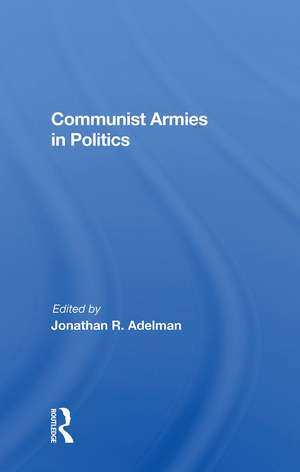Communist Armies In Politics
Editat de Jonathan R. Adelmanen Limba Engleză Hardback – 7 iun 2019
Preț: 766.85 lei
Preț vechi: 1028.97 lei
-25% Nou
Puncte Express: 1150
Preț estimativ în valută:
146.80€ • 150.98$ • 121.79£
146.80€ • 150.98$ • 121.79£
Carte tipărită la comandă
Livrare economică 17 februarie-03 martie
Preluare comenzi: 021 569.72.76
Specificații
ISBN-13: 9780367022204
ISBN-10: 0367022206
Pagini: 240
Dimensiuni: 146 x 229 mm
Greutate: 0.6 kg
Ediția:1
Editura: Taylor & Francis
Colecția Routledge
Locul publicării:Oxford, United Kingdom
ISBN-10: 0367022206
Pagini: 240
Dimensiuni: 146 x 229 mm
Greutate: 0.6 kg
Ediția:1
Editura: Taylor & Francis
Colecția Routledge
Locul publicării:Oxford, United Kingdom
Descriere
This book analyzes the historical and contemporary political roles of armies in the majority of the world's Communist countries, stressing the problems faced and overcome by Communist parties in the creation and development of legitimate and effective armies. The authors, all area specialists, explore the sources of the dramatic differences between the highly visible and powerful political roles of the Chinese, Vietnamese, and Cuban armies, the small but increasing political role of the Soviet army, and the minimal political roles of most Eastern European armies. Emphasized are such variables as the nature of revolution, the role of civil war, and the extent of external interference (particularly from the Soviet Union). The authors show how these variables are key factors in determining the path of army political development.
